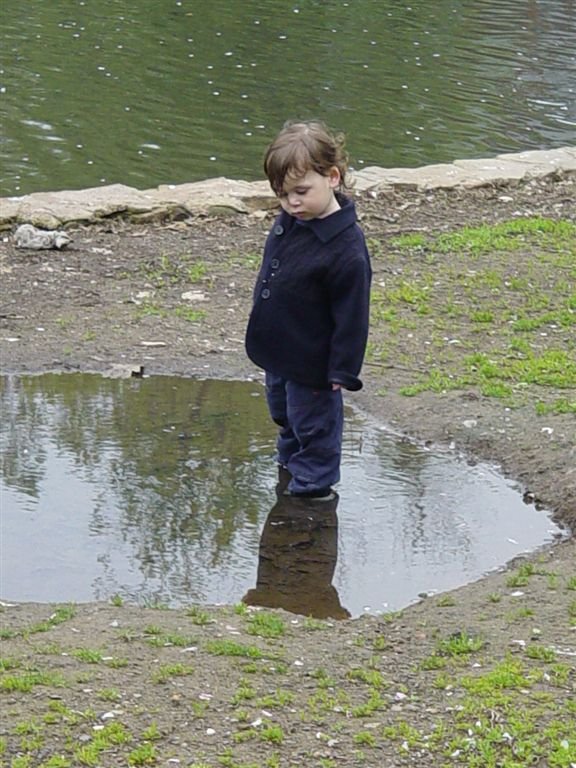Parenting & Working During Quarantine
Coping During Coronavirus” Series, Part 1 of 10.
These gorgeous tulips are from the last visit of our friends, which happened 1.5 weeks ago – a beautiful and sad reminder of how our social interactions are changing.
We are now staying home: 3 kids, who are making their way through the school’s online curriculum, husband who is now telecommuting, and I, supposedly finishing up literature review for the 1st year PhD review and wrapping up coaching projects.
In reality, I’ve been doing a lot of organizing: food prep, streamlining schoolwork and exercise for kids, normalizing the new routines, checking in on people we care about, creating alternatives for cancelled activities… I’m an introvert, so there’s a bit too much going on at the same time, and at times, it’s going on a bit too loudly (partly, my fault for having a short temper, partly, because there are a lot of us in a closed space). We are finding the new rhythm.
I know you’re overwhelmed by online resources and a huge volume of advice offered by experts and experts-wanna-be on how to “seamlessly” work from home and homeschool.
You’re already doing the impossible, and no amount of advice will help you entertain kids under 5 years old and work efficiently at the same time. Something will have to give. Something will fall through the cracks (hopefully, not your sanity), and everything will be “not normal” for a while.
If it helps, no one else has it “completely together” either.
Below are some thoughts and observations that may make us feel less alone, less disconnected, less insane, and less “I don’t have it all together, but everyone else does”. It is for parents who usually work not-at-home, and need to maintain sanity as they are trying to get work done from their home office (think: dining room table) while managing their kids during a quarantine, for a long haul.
* * * * *
Your company is allowing you (making you?) to work from home.
Your babysitter has already called to say she won’t be coming.
The schools and daycare centers are closed.
If you read any of the following on Facebook, Intsagram or elsewhere, just know it’s “fake news”:
“Some of us do this all the time: we work from home, manage the kids, run the household… What’s the big deal?! If we can do it every day, you can do it for a few weeks without complaining.”
“You should enjoy this family time! What a great opportunity for you to spend a day with your kids!”
“What kind of parent are you if you can’t even handle time at home with your kids?!”
“You shouldn’t need all this wine just because you’re working from home while your kids are around.”
“Quarantine is awesome! We’ll bake cookies together with the kids, and play board games!”
“What are you talking about? My kids will just read and practice piano, won’t yours?”
“Just let ‘em watch TV all day. It’s not a big deal, don’t get all worked up.”
Whew.
Now, let’s dust off, and have a frank conversation.
For parents who normally work from the office, work from home while on quarantine with kids presents unique challenges:
– You want to get work-other-than-parenting done, but can’t
– You are used to having mental space to think about things, but “kids + quarantine = zero mental space”
– You’d rather read a book (or do anything else, honestly) than cook/clean/entertain kids especially when kids are cooped up at home for days/weeks, even through you love them very much
– You find yourself repeating simple directions multiple times, without any impact on anyone or anything other than your nervous system, and that’s not how things usually work during your regular workday
– Your partner is trying to work from home as well, and somehow, it is your responsibility to make sure that the kids are occupied and not interrupting the work flow, even though you both have to work.
Depending on the age of your kids, you may be dealing with anything from temper tantrums to the war of the worlds between the siblings.
Your objectives:
1) to survive the quarantine without feeling angry and resentful (anger and resentment are just bad for your nervous system)
2) to help your kids survive the quarantine without feeling angry and resentful (anger and resentment are just bad for your kids’ nervous systems)
3) to feel at the end of each day that your day was not completely wasted (you will hopefully accomplish objective #3 by taking care of objectives #1 and #2).
If you have amazing kids who will simply find things to do for themselves, diligently follow online curriculum and watch educational videos, kids who wipe their own behinds, resolve conflicts with siblings quietly and fairly, warm up their own meals, and let you work without interruptions, that’s wonderful. The chances are that even the best-behaved older kids (and adults) will change their patterns of behavior during this crazy time.
Here’s what I’m thinking for staying sane:
1. Begin establishing a “new normal”. Nothing is the way it used to be. The way you shop, eat, travel, work, interact with others is not the same during this pandemic. Create touchstones for the “new normal”. Maybe it’s a family meeting at a certain time, or a 1-minute “crazy time” every few hours, where everyone can make any noises, jump, run, and go wild for a minute (our rules for this are: no touching anyone, and no breaking anything during the crazy minute), or looking at the stars every evening.
2. Minimize multitasking. People are simply terrible at multitasking. It’s upsetting to feel like a failure, so set yourself up for success: if you’re playing with your kids, don’t even think about the fact that you could be doing something more interesting (yes, like work; because playing with kids is not always the most interesting thing a parent could possibly do).
3. Add “under the table” to any activity that you set up for the kids. Do you remember that game where you add “in bed” after a fortune that you get from a fortune cookie? Try adding “under the table” to any activity that kids choose. This will make the activity last longer, and potentially give you a longer uninterrupted chunk of time to get work done. Miraculously, reading a book or building lego bridges under the dining table becomes a much more attractive activity than just reading or building.
4. Have designated time for play and for work, if your kids (and your boss) are mature enough to understand the concept. “I’ll play Connect Four with you from 10-10:15, we can build a fort from 10:15-10:30, and you can choose a book or an art project for the time when I get on a conference call at 10:30.” (This will not work with younger kids… Something will slip through the cracks.)
5. Use TV as your last resource, not your first resource. It is improbable that your kids will want to stare at a screen (TV or computer) from 6 a.m. to 9 p.m.. I’m sure there are exceptions, but just work with me here. In the morning, while your attention span is still not shredded into pieces, it may be worth your time to get the kids involved in a game, or set something up for them. Then, at some point of the day, there will be a time when you must have peace and quiet, and that’s when you hand over the remote. Think: 2 p.m. client call that you must take without interruptions.
6. Break up your work into smallest possible chunks. You will be interrupted, often. If you work from home all the time, your kids are probably used to the rhythm, and tend to interrupt less, but it will still happen. You will get interrupted. Often. (Did I already say that? That’s what happens when you get interrupted, often.) In order to feel like you’ve accomplished something work-related, have a list of small things that you can keep crossing off the list between interruptions. (Yes, I know that if you are a really big deal at work, and your job is a big deal, this will not work… Things will be slipping through cracks, for all the working parents.)
7. Lower your standards for order and cleanliness. At least ‘till the time you can stop working for a while. Let the basement be a mess, let the unfinished food sit on the dining table, let the crumbs be all over the place, and let the crayon art projects remain on the walls. Just for now. It will all get cleaned up in due time. Just not right now. It’s less taxing on your nervous system this way. Until you are ready to deal with it, pretend that you don’t notice the mess.
8. Make an effort to be present rather than be absent (think: coffee rather than wine). If you have time, google “benefits of being present”.
9. Think in terms of survival, not discipline. We were stuck in a half-flooded house upstate NY, w/o electricity or cell phone reception after hurricane Irene. Our youngest was a couple of months old at the time. For breakfast, we had ice-cream. That’s one of our most vivid memories from those days – not moving everything to the second floor in hopes that the water won’t go up that high, not the fact that the kids had to wait for everyone to pee before they flushed with a bucket from a water-filled bathtub in order to conserve water. They remember ice cream for breakfast. The freezer was broken, so why not… “It’s bad for your teeth” is “why not” , but forget discipline: you’re in a survival mode.
10. Remember your main objective: for you and the kids to survive this quarantine without anger and resentment. If you accomplished this, you’ve done a great job. It may sound like we’re setting the bar really low. Just for one day, though, can you be ok with a bar that is set low?
I’d love to hear your stories of getting through this seemingly impossible challenge of working, learning, parenting and creating under quarantine. How are you making things work? Please, share your story with me, Alina@AlinaBas.com . Also, please, sign up for my newsletter if you’d like to see new posts like this in your inbox.
FIGURING IT OUT TOGETHER:
Much of my executive coaching work is done remotely via video conferencing/phone, as my clients are all over the map. While it may not be wise now to stick your hand into the Boca della Verita in Rome, we can still search for your deep truth through coaching, via Skype, Hangouts, or Zoom, http://AlinaBas.com/get-started . We can talk about your priorities, managing virtual teams, co-working with your spouse from a home office, and strategies for moving through uncertainty.
* * * * *
One of my favorite workshops to teach is “Intuition: Myths, Science, and Practice”. I’ve taught it to software engineers, financial analysts, entrepreneurs, lawyers – analytical thinkers interested in developing their sensory capacities to understand and use their intuition more effectively. One-on-one skill development, private groups, corporate workshops. Understand what scientists and practitioners know about intuition, and learn to use the body as a sensor for information that is not accessible through step-by-step reasoning. Please pm me or email at Alina@AlinaBas.com for more info.
* * * * *
One of my favorite workshops to teach is “Intuition: Myths, Science, and Practice”. I’ve taught it to software engineers, financial analysts, entrepreneurs, lawyers – analytical thinkers interested in developing their sensory capacities to understand and use their intuition more effectively. One-on-one skill development, private groups, corporate workshops. Understand what scientists and practitioners know about intuition, and learn to use the body as a sensor for information that is not accessible through step-by-step reasoning. Please pm me or email at Alina@AlinaBas.com for more info.
Coping During Coronavirus Series:





